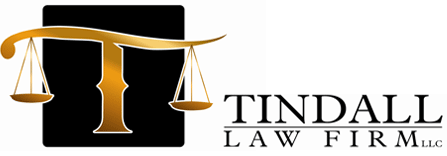Workers Compensation or Personal Injury?
A Tradition of Excellence
 Sampling of Successful Case Resolutions
Sampling of Successful Case Resolutions
 Read our answers to some frequently asked questions.
Read our answers to some frequently asked questions.
Statement
 View Our Mission Statement
View Our Mission Statement

Connecticut Personal Injury and Wrongful Death Claims Involving Teenagers
May 3, 2013
Wrong Way Drivers Warned
May 16, 2013When someone is injured on the job, he or she has may have some options as to how to pursue payment of medical bills and other costs associated with the accident. In Connecticut, workers’ compensation law is written so that workers receive limited benefits when they suffer an injury or illness that is caused by something that happens at work. Most workers compensation cases involve disability benefits if the worker is permanently injured, payment of medical bills, or limited death benefits if the worker dies, and payment of wages at a reduced percentage of the normal wages.
Thousands of people are injured at work each year. Many have little to no understanding of their rights under workers’ compensation law, and many of them are surprised to find that their workers’ compensation coverage will not pay for all of their costs and/or expenses.
If someone is injured at work and if a third party is at fault other than the employer or a co-employee, the injured worker has the option of pursuing a personal injury claim. A personal injury claim is not limited in the way a workers’ compensation claim may be in terms of collecting damages. A victim who collects compensation under a personal injury claim may ultimately receive more in damages than if he or she chooses to file a workers’ compensation claim, though this is not always the case.
In many cases you can bring both a worker’s compensation case and a concurrent personal injury civil lawsuit for the same injuries of the same date, if the injuries were caused by a third party who is not your employer, while you were working for the employer.
Here is a comparison of some important points regarding workers’ compensation claims compared to personal injury lawsuits in CT:
| Type of Damages Paid Out | Workers’ Compensation Claim | Personal Injury Lawsuit |
| Payment of Medical Bills | Medical bills that are reasonably related and caused by the workplace incident are covered | Compensation may be recovered for all medical bills related to the incident in a lump-sum payment. |
| Disability Payments | Limited coverage, often limited to a small percentage based on an arbitrarily assigned number of weeks the law has determined a particular injured body part is worth times a portion of the injured employee’s wages | Payment for this has no real cap, but is based on whatever is fair, just and reasonable as determined by a jury or a judge at a bench trial |
| Compensation for Pain and Suffering | These types of damages are not allowed in W. Comp claims | May recover damages for mental anguish, pain, suffering and emotional distress both past and future. |
| Lost Wages | May recover what amounts to a little over 60% of regular wages, sometimes 100% if specified in a union contract | May receive past and future lost income and any impairment of one’s ability to earn money in the future |
| Can they be sued Civilly in Court | Denies victim the right to sue the employer—the “exclusive remedy” clause, unless very specific hard to prove circumstances are met | Victim may sue anyone liable for wrongfully causing another injuries |
Workers’ compensation cases when disputed are resolved by a Commissioner of Worker’s Compensation, and there is no right to a trial by jury. In contrast, a personal injury case, when disputed is determined by a jury or a judge if a jury trial is waived. In workers’ compensation claims, most of the money received is designed to pay a portion of your lost wages, your medical bills, and some other expenses. In a personal injury case, you are also entitled to recover sums for your pain and suffering, the full amount of your lost wages, and all of your medical bills.
You generally receive more money for a personal injury claim than for a workers’ compensation claim, though some w. comp cases when closed out or “stipped out” as it is called may recover a considerable sum of money. However, attorney’s fees are less for workers’ compensation than for personal injury cases.
You can find out more about the difference between personal injury and workers’ compensation by contacting our Tindall Law Firm for a complementary consultation. We are very experienced in handling both worker’s compensation matters and personal injury matters. Our phone # is 203-755-0018










